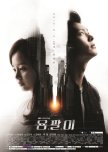
Idiosyncratic SK interpretation of a sequel to 'Sleeping Beauty' from the Prince´s perspective :-)
I would like to see the KDrama "Yong Pal" as an idiosyncratic South Korean interpretation of a sequel to 'Sleeping Beauty' in the modern zeitgeist, which is told from the point of view of the prince - what had actually happened after the two had celebrated their wedding at the time? ..."Yong Pal" gives its own makjang-infused answer several centuries after the Brothers Grimm :-)Obviously, the story also has a critical focus on recent health care topics. Basically, the Hanshin Hospital takes center stage. This belongs to a Jaebeol conglomerate. Yong Pal is employed here as a talented young intern. But Yong Pal also works illegally as a doctor. Provided the price is right, he treats those who need medical care below the official radar of the health care system. Yong Pal gets promoted as exclusive doctor for the discreet care of the VIPs, too. On the 12th floor, the very rich and most influential patients stay within a separate department of the Hanshin Hospital, where, in addition to plenty of luxury and discretion, only the best medical care is guaranteed. Towards the end, Yong Pal also works as a doctor in a simple, small, rural clinic. Thus, in the course of the KDrama the protagonist's field of activity (and challenges with ethics, or rather the lack of it) covers the broad spectrum and the current focal points of the topics in health care (i.e. in South Korea).
In the beginning, Yong Pal is clearly at the center of the story, captivating the audience. The focus shifts after he meets coma patient Han Yeo-jin and helps her to regain consciousness, strength and her rightful legacy as Jaebeol of the Hanshin Group. From then on, everything revolves more around Yeo-jin and her vendetta. This isn't less impressive, especially with Kim Tae-hee's intense acting. However it is different. The second part thus offers pure Korean-style Makjang: more drama is always possible. As a result, storytelling takes another lane. (Many viewers obviously don't seem to have been very happy with that. Makjang fans, however, will definitely get their money's worth.) The transition between the first and second parts is moderated by a transition, which is filled with the blossoming romance between the two protagonists. From then on, however, there is hardly any room for a love-life in the protagonist's bitter fight for inheritance and revenge, in which she is ready to take any means. (You may want to take that against the KDrama as well.)
All in all, "Yong Pal" is a moving story that is grippingly exciting at the beginning and furthermore tells of a makjang-charged revenge. Love story included. Due to the success of the series at the time of broadcasting, actually two more episodes were added.
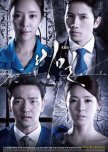
An inverse function... Consider the journey the reward. Truly captivating.
Two core components of KDrama characterize the recipe of "Secret": Firstly, the rich and powerful can obviously get away with anything. Secondly, a secret not only changes those who know about it, but eventually comes to light. Yet the brilliant mixture of this pastry makes the difference: the fatal initial constellation of the relationship dynamics is so cleverly shifted, twisted and tricky in several emotional loopings that the emotional world is completely turned upside down - an inverse function...For quite some time I avoided this KDrama, because (from the description) I thought I already knew how the story was going to go. ...Quite familiar, already seen many times... However, at some point I just wanted to have a glimpse (probably because of Ji Sung). What a surprise: it was truly captivating...
Moments of foreboding and predictability, yes, there are. But believe me, that doesn't stop you from wanting to see HOW things in their complicated entanglement can still turn out for the best. On the contrary, you CAN´T WAIT to experience that! The destination may be known, however, consider the journey the reward.
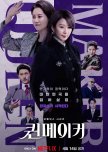
Sisterhood in a man´s world. Let yourself get both annoyed & inspired by politics behind the scenes
What a wonderful power show inside out politics. Yes, it's ugly and you might want to smash right into it. Often enough and plentifully. But it also has its heart in the right place. Repeatedly. Dealing with politics may make you doubt the meaning and purpose of democracy. But it doesn't get any better without those intrepid heroes willing to stand up for a better world. One may sometimes lose faith in something like a democratic gene in people. But one can always hope and fear. The game is only over when it is over. The election is not over until the votes have all been counted.Stupendous women. On both sides of the front. And the men? Oh well. So and so. (And if many people complain about Lee Geung-young because of his scandal, he at least prefers to choose the role of the challenging guy, where one can wholeheartedly consider him disgusting...)
Well, I consider the sisterhood thing being the crucial message for me in this story. Yes, there are strong, competent women, who, against better female instincts, cling to old structures and customs - in the wake of the Jaebeol clan. Yet there are those competent, motivated, witty, loyal to higher ideals women, too, who are sharing those ideals with others and walking side by side. Even if tempted and seduced they still sense what is right and wrong and act on that when in doubt. Using and abusing (interchangeable lackeys) for personal gain vs. appreciation and recognition (of brothers and sisters) are very sensitively compared here as common HR strategies and management styles.
With 11 episodes (only), Netflix slips through the story fairly quickly - only the most necessary input about the protagonists are given. However, especially the actresses don't let the story rush past you. Kudos to (in this case in particular) the heart and soul of the Ahjummas and a storytelling that, while strikingly handling the political landscape for its stringency, nevertheless spreads the complex mixture of motives, hopes and fears in a well-sorted manner.
Does the end justify the means? This age-old question apparently never ages. "Queenmaker" makes you think, but also often leaves you terribly annoyed about the way things are. The KDrama makes you angry, demoralizes, and yet: at the same time it gives hope. Strong women, a strong story, an often enough an ugly world in which, however, once again each individual contributes to the fact that it could be one way or another...
Obviously I would recommend it - if you´re in the mood for something like that. And: obviously there are no Idols and no Love Story involved. People may die, but it is no crime story. It isn´t funny, either. Nevertheless, I would say, you should check it out and let yourself get both annoyed and inspired by politics behind the scenes.
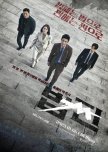
Compelling, complex vendetta, expressive play, impressive spirit & cunning plot development
KDrama Orbit starts into 2023 just as the year 2022 had been – full of productions with their fingers put right into the sore of wounds of society, savouring its imbalance with relish. "Payback: Money and Power", again, is one of those. It offers an exciting, astute, complex and clever story about revenge against those giants, who can hardly ever successfully be confronted by legal means. Money helps… those... who want to have things turn out the way that they prefer… who can afford to have things turn out the way that they prefer... who have a strong vision, too.The underlying premises are pretty sobering, yet well-known territory in KDrama land:
-The system (democracy and the rule of law) serves the money, not the people, because the people who fill the system with life can be bought.
-Power and money are inseparable.
-Hierarchical class thinking is far from overcome. The value of a person's wealth directly determines their value as a human being.
-Huge fortunes and legality rarely go hand in hand.
-The good news for the wealthy: money can buy you justice (and law).
-The bad news for the ordinary: Life is unfair.
-With legal means (alone) justice is not a given.
"Payback: Money and Power" bluntly takes all of these premises and blends them in a vendetta against Goliath revisited. Therefore, David first becomes a Goliath himself. In this case, David's real name is Eun Yong. He has risen from a penniless, simple young man to become the CEO of a private-equity fund who successfully speculates astronomical sums of money. Together with a team, that for him is family, too, he takes on a financial cartel in which politicians and especially the public prosecutor's office are also involved. Thus, it is not played fairly. On the contrary: it is actually life-threatening.
So, at first glance the plot doesn't seem to promise much that's new. Nevertheless, "Payback: Money and Power" offers a dense, strong story, with expressive play and impressive spirit. The presence of the mimes in front of a rough, gloomy background is haunting. To be honest, I paused for a moment - not sure whether I really want to know and see everything or rather drop. Eventually, I couldn't help it, couldn´t let go of it. I WANTED to know and see. The impression, the KDrama left with each episode, was just too powerful... And I'm thoroughly glad about it. A great story. With a considerably cunning plot development. Despite the underlying bitter seriousness an invigorating (for all the refreshing poetic freedom - e.g. not everyone is as talented, tactically adept, self-confident and yet grounded in a good balance of heart, mind and soul as Eun Yong) and encouragingly optimistic perspective.
Oh, actually, here's another premise I forgot to mention at first...
-But what a relief that the law still exists... and also those few, who stick to it, believe in its value and power, and thus keep fighting for it with wits and passion...
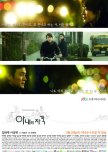
A career of the dismantling of a wife´s self-esteem and the almost impossible attempt of recapture
A highly valuable socio-critical study about being a wife, a mother, a granddaughter in South Korea today (actually 2012). The KDrama offers an in-depth (at times disturbing) insight into everyday Korean reality around the hierarchical concept of family and the upbringing of children. There is also a lot of local color about the simple everyday life of the lower and upper middle classes.The framework is provided by the madness about education, which in South Korea means that mothers in particular are under enormous pressure to perform (long before it really reaches the pupils themselves). The mothers are expected to support their child for the glory and honor of the family in such a way that it later has the best outlook on a professional career. Career in that sense is starting early...
"A Wife's Credentials" puts a critical magnifying glass on exactly this social dynamic. It also puts the magnifying glass on the disadvantage for women who give up (should give up!) their job with marriage/family life. Additionally, the KDrama also spotlights the issue of sexual assault in the workplace, the stigma of a single parent and finally social hierarchy.
It centers on So-rae, a once-creative young graphic designer and children's book illustrator who (one could say rather accidentally) stumbled into marriage and is now forced to prove herself as a housewife and mother in an ungrateful environment. A little bit of sunshine is provided by her son. However, in the end he too might be taken away from her. "A Wife´s Credentials" is basically illustrating the career of the dismantling of a wife´s self-esteem and the desperate, almost impossible attempt of recapture.
More than once you want to shake and shake even more not only So-rae but also many others. Yet, this is all due to family values and the social context in South Korea (...I wasn't aware of its extent the first time I saw the show). The tremendous injustice that So-rae is confronted with from several sides in addition to what she actually allows and gives in to, is rather disturbing and can eventually get on your nerves. For me as a woman, too, (yet being sozialized in Germany) it was sometimes extremely hard to bear.
This social study of a woman´s life (in South Korea) is painful to look at, yet told in a highly authentic manner. Thanks to veteran high-end actress Kim Hee-ae at its best, So-rae's emotional processes are brought to life even more authentically. With the example of her male protagonist facing the same subject - an unhappy marriage and a potential divorce - the dramatically differing social stand of men and women are presented rich in contrast!
The soundtrack stands in fresh contradiction to the sobering subject matter, which repeatedly embeds the events in a cheerful, confident atmosphere and encourages facing the challenges of life optimistically.
The various side plots profoundly round off the picture of contemporary society of that time. (Compared to more recent dramas, society´s expectations in that respect unfortunately doesn´t seem to have changed).
--------- SIDE NOTE --- Divorces ---
... in South Korea are still hardly socially accepted. At least ´adultery´, which was at the time of the KDrama still an illegal issue, that could be punished (in fact even with years in prison) is no criminal act anymore. However, a law is still in force, prohibiting adulterers in South Korea from starting divorce proceedings. Plus, in order for the divorce to be legal, both spouses must agree. And if so, at least significant monetary compensation must be expected. However, this obviously doesn´t help prevent adultery (especially among husbands) to happen. It´s rather a matter of hypocritical morals - a South Korean study in 2015 found that of surveyed men 50,8 percent cheated at least once. It is among men almost considered normal with no consequences for the valued concept ´family´. Whereas among women it was 9,3 percent - and there it seemingly happens more often at a point within the reationship, when the wife might also be prepared to end the ´failed family project´ - but cannot simply do so.
----------------------------------------------------------------------
At last, I deliberately want to mention the relationship between So-rae and Tae-oh, which is told in such a refreshing way that goes beyond the usual clichés. For once, no silly chastity. No romantic exaggeration. Real. Grounded. Not a hero, who would do everything unimaginable for his loved one so that the sun would rise in the west (...yeah, a little bit, though...) ... Instead, an appreciative, loving, grounded, not completely selfless, but patient partner at eye level and at your side, if woman needs him. Not Mr. Perfect, yet a man, who is prepared and willing to grow in relationship (even if it might be bothersome at times).
Finally, the coherently told story convinces with an ending that provides emancipated happiness - noiselessly, softly and with balanced steps.
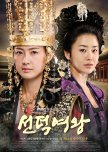
Brilliant. Timeless epic quality of emotionally processing the life of 2 historic heroines
This KDrama tells historical heroine stories for a change. (Yes: female AND plural.) On top of that, enriched along the way with some highly topical insights and a vivid examination of management systems - what does the common people need? How does it want or have to be lead? In this respect, the 2009 series has not lost any of its topicality. But above all, "Queen Seondeok" brings the viewers closer to the earlier (not so well represented in KDrama and KMovie) Korean history of the Three Kingdoms.Here, history is presented in 62 episodes in a moving manner and in dazzling characters, while offering valuable historical input. 62 episodes should not frighten you. This is perhaps more like 5 or 6 seasons western style. You don't have to go through all the episodes in one go, (but you can of course). To be honest, the number of episodes and the rather stiff-looking poster with a heavy crown kept me from watching the series for a long time. But that was a big mistake. This series is wonderful in view of the wealth of impressions, personal processes of the protagonists, and the profound examination of the attitude and philosophy of rulers. Also funny in places. In any case, an impressive piece of Korean history that is told in a round, rich and colorful way. The KDrama leaves nothing out when it comes to being human and being a hero - it presents all of this in various dramaturgical entanglements and depths, with twists & turns and deep feeling. (Swords, bows and battles are also included.)
This is about real historical personalities from Korean history, who made remarkable achievements in their time. First and foremost Queen Seondeok. She was the first Queen of Silla and the first of the few female heads of state in Korean history. If one considers her progressive achievements for her people, she must have been a charismatic personality in order to be able to place herself in the first, officially leading position in this feudal male world. Her life, but also that of other contemporary significant, history-shaping people in her environment are prepared dramaturgically lively and unforgettable. Admittedly enriched with a bit of poetic freedom in the service of a compelling and exciting story. However, in the historical drama orbit, it seems to me quite acceptable to bend the facts here and there in order to create a vivid impression of the character of the historical figures and their work instead. This is much more memorable (in passing) than exact chronologies. In addition, the actual valid sources that can be evaluated are limited. Even historiography has to do a bit of guessing every now and then to understand where, for example, a woman at that time got the vision, the strength and the courage to put men in the second row - and at the same time intelligent, visionary and with respect for the people, to rule in an almost idiosyncratic way.... In my opinion, the fictional plot does not damage the essential impression that one gets about life and challenges in the Silla Reich, about the charisma of the historical personality of Queen Seondeok and the historical figures around her plus her achievements for her people. The KDrama draws a memorable, unforgettable character portrait of the Silla Empire in the 7th century. In doing so, it brings the bones of the queen lying under one of the burial mounds in Gyeongju to life again.
Good to know: The Silla Empire was not yet under the influence of Confucianism, which clearly defines the man as the head of the family/tribe. Among the noble Silla families there were also those in which descent on the mother's side was decisive, or women were considered the heads of the family. At that time, matrilineal and patrilineal tribal structures still existed in parallel. Therefore, the respect for women and their functions in society was comparatively higher overall - but still not a matter of course.
For me, what is valuable about this story (and at the same time the timeless quality of the KDrama) lies in the juxtaposition of two very different, each impressive, intelligent female figures of their time: Princess Deokman (Queen Seondeok) and the noble concubine Misil, who hardly had an influential king or leader of the Hwarang left out during her time in order to directly influence political events. In fact, the two women did not live at the same time, but poetic freedom overrides this and juxtaposes the two as equal antagonists. (Extremely successful!)
The KDrama "Queen Seondeok" is characterized by a timeless epic quality in the emotional processing of the historical events. Brilliantly done in places, quite funny at times, with colorful vividness and everything that life usually entails: plenty of drama that stirs the spirits and also touches the heart. An exciting script (which in the second half has to work through a little more historical facts), and a colorful dance of highly inspired mimes, reviving those distant 50 years in the past 7th century. Not only the later queen and the concubine Misil get a memorable profile, also the men around Queen Seongeok - Bidam and Kim Yushin - are noticeably filled with life. Love story included - it's more of an encore than the main thing when it comes to the entire story, but it refreshes the second half as a balance to the historical ride through time.
By the way, the ratings literally went through the roof at 43.6 percent when the series was broadcast on television in 2009.
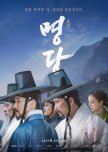
Everything stands or falls with the choice of an auspicious place. Insights into Korean geomanticsm
"FengShui" is a historical KMovie that addresses the political takeover by Heungseon Daewongun and his son, King Gojong. Even more, it deals with the Korean version of geomancy - Pungsu-jiri-seol = theory about the relation between wind, water and earth - which has accompanied the country across all dynasties since at least the late 9th century. The traditional theoretical concepts, studies and observations are about which constellations in the landscape bring luck or misfortune to people. In South (and North) Korea there is hardly any building, tomb, temple, or city that was not built from the point of view of Pungsu. To this day, Pungsu is still quite popular.Against this background, one could understand the movie "FengShui" as a nice, sometimes exciting story that comes up with a pointedly, rather apolitical, and for some even esoteric explanation about the ending of the Joseon Dynasty: At last, it was the (wrongly?) chosen location of the tomb that decided the end of the empire...
In any case, the story dramatically illustrates the importance of Pungsu to the people of (Silla, Goryeo, and) Joseon. And by the way, it gives an insight into the political situation during the last decades of Joseon. Without reference to this, however, one may be a bit surprised about the scramble for graveyards and also the struggle for power at the palace would be an interchangeable one among the many stories available on screen... No matter which glasses you choose, the cast in any case guarantees top-class performance.
Eventually, if you are interested in Korean society and history, the KMovie "FengShui" opens up an understanding of the great importance regarding the harmony (or disharmony) of human life with natural events (such as weather and seasons) as well as in relation to geographic features of the landscape (such as mountains and lakes and landscape) - as they are having a direct impact on human health as well as the fortune or misfortune of personal, family or even national fate. Everything stands or falls with the choice of an auspicious place (Myeong-dang) for one's own house, grave, market square, administrative headquarter, temple, fortification, palace, etc.
The teaching goes back to the Buddhist monk Doseon (826-898). He was a Daoist master and Zen Buddhist student who adapted the Chinese principles of feng shui to the Korean landscape and cultural environment. What is special about it is the concept "grow with nature", which in this respect focuses on an analysis of the spiritual and matter-related energies of mountains and landscapes as well as their effects on human life. (Interior furniture etc. plays a minor role in Korean pungsu.)
The KMovie "FengShui" puts a Pungsu master at the center of the story. Due to the more or less favorable choice of location, he can predict and influence how the fortunes of the people affected will develop. In this case, by using this knowledge to choose the most favorable burial site, he becomes a veritable kingmaker.
By the way:
All 42 royal tombs of the Joseon Dynasty over a period of more than 500 years are largely undamaged to this day. This is worldwide unique. All are arranged in the landscape according to the teachings of Pungsu - at most close enough to the capital for the royal family to visit the tomb within one day. (The concrete design of the complex was based on Confucian specifications.)
By the way:
The historical starting point of the story is the fact that Heungseon Daewongun, a central political figure of the last Joseon decades, moved his father's tomb on the advice of a Pungsu master. The new setting somehow promised that 2 kings would come out of his family. That was actually the case. But after that, the Joseon Dynasty came to an end.
------------------------- SIDE NOTE: --- Myeong-dang and Korean Pungsu ---
Pungsu officially goes back to the monk Doseon. But there are also sources that indicate that there was already a spiritual tradition with human-nature harmony on the peninsula, the aim of which was to efficiently balance landscape and topography, natural forces and sanshin (mountain spirits) in order to determine the fate of the purposefully influencing people.
Doseon's works have not survived. But his yin-yang geomancy was handed down in the works of later Confucian scholars. In the 12th century book "Haedong-Pirok" about the secret history of the country Doseon's theories were mentioned and even expanded. 5 centuries later, Yi Jung-hwan (1690-1752) in "Tangni-chi" analyzed the topography and landscape of the entire peninsula according to these geomantic points of view.
Central to this is the concept of Gi (forces of matter) as opposed to Li (forces of Heaven and Spirit). Mountains, and in particular the central mountain range that stretches like a spine across the peninsula, are the source of Gi. The energy flows, so to speak, from the mountains into everything that the landscape produces, into the water and into the air - all that nourishes the humman being. Gi thus becomes concrete and figuratively the source for a strong, happy people.
Another central concept is "Hyeol": a place of perfectly balanced forces of heaven (cheon-gi) and earth (ji-gi) from which people benefit the most. Such Hyeol with high, positive energy potential include, for example, Jiri-san's Cheonghak-dong valley in the south of Samshin-bong peak or the location of Buseok-sa temple on Sobaek-san. "Hyeol" actually means an ´opening´. Like the 9 openings of the human body, there are also openings in the landscape through which energies can enter and escape. If you like, Hyeol could be considered acupuncture points in the mountain landscape. Knowledge and control of Hyeol thus is highly related to power. A more ancient term for Hyeol comes from the shamanistic tradition: 'Myeong-dang', the (spiritually) lightful or auspicious place. The idea behind it: Bedding the ancestors at the auspicious place can bring prosperity, power and good fortune to future generations. Bedding the kings at auspicious places accordingly brings prosperity, power and good fortune to the nation.
...The KMovie is originally named "Myeong-dang"...
---------------------------------------------------------------------
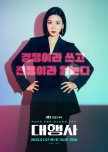
Women on the ball. Delighting, enraging, inspiring, concerning. Excellent script. High-end KDrama.
"Agency" has it all. Viewership has skyrocketed, as have ratings. "Agency" is the hit. Cool freshness, fashion, speed, one or the other rivalry as well as all categories of human manners, even the lowest, underline the handpicked lifestyle ambience. This all guarantees a lot of fun, seriously...The topic hits the South Korean nerve of the time. The nerve of women in particular, I should add. What may appear to Western eyes as an entertaining office drama with catfights has a completely different explosiveness in the eyes of Asian, especially South Korean viewers: The deeply hidden, rousing topic of the time, which affects everyone, is ´population decline´. The critical nerve bubbling on the surface revolves around ´sexism´ and ´misogyny´. The incumbent President Yoon proclaimed that these topics could be shut into history books, but "Agency" gives him the lie, right on. The KDrama clearly demonstrates how up-to-date it is. More than one South Korean woman in this story, no matter what position – down to the generation of the mothers of those mothers in the series - will find themselves here. And more than one man as well...
It is pleasing to see how razor-sharp and competent the female protagonist proves herself in this man's world. Also pleasantly refreshing side effect here and there: alternative model approaches for female vs. male management styles. And then there is the extravagantly privileged and insolent Jaebeol of the youngest generation who eventually is inspired to break free from her heavy chains of family-clan expectations. Besides their punching power, both lead ladies are palpable, too. Watching the series is a pleasure, even if the topics touched on may also arouse rather different feelings as well... A colorful bouquet of thematically critical, plot-relevant threads is dramaturgically subtly intertwined. In addition to the two female leads, there are also diverting (women´s lib) moving stories about Go Ah-in's employees and colleagues.
Stellar, good-humoured actors. Excellent script. A wonderfully balanced mixture of fun and seriousness, of pace and depth. The coherent details were undeterred on a differentiated, complex overall picture of the current business world. High-end KDrama-'pleasure' – delighting, enraging, inspiring and concerning. And while we are at it, "Agency" is innocently, smilingly, prettily and yet cleverly and valiantly placing a feminism-sting, too.
---------------------------------------------
SIDE NOTE: --- Misogyny and population decline in South Korean society ---
Without women it won´t do. But South Korean President Yoon has now officially messed with them. There was an enormous wave of protests when he announced that he wanted to abolish the ministry, which had been set up around 20 years ago to support women against sexual assaults and for equal rights, arguing the issue was no longer an issue. Immediately, around 800 organizations formed and stood up. President Yoon, who is promoted and sponsored by a strong conservative, patriarchal current, has blown a hornet's nest. His world – that of macho men – is obviously different from that of contemporary South Korean women.
It is a given fact, that misogyny in South Korea characterizes everyday life throughout all classes. Neither an entrenched, male-dominated business world from the bottom up to the boardrooms, nor professional disadvantage and discrimination of women in the workplace, belong to history yet. In the contrary, recently it has even been fuelled by the election of the current President Yoon. Fortunately, there are opposing movements and criticism. The KDrama "Agency" uses a socially critical magnifying glass here. Nevertheless, there is still a long way to go, although a drastic reflection is desperately needed, in order to be redirect economic development towards a positive light.
The current demographic trend is closely linked to the economic and social situation, which is shaped by antiquated patriarchal beliefs. Those old (apparently always happy to be taken off the socio-cultural shelf, dusted off, polished to a high gloss and then put back again) convictions stand in stark contradiction to the high pace of the high-tech modernity of everyday life in South Korea. This tense paradox is already having a negative impact (not just on women's attitudes towards life, but also) on the country´s economy. The official statistics on population development from August 2022 show declining numbers for the first time. Actually, the country's birth rate is the lowest in the world. There is no trend reversal in sight. The population will continue to shrink. And that is already and will even more so affect the economy. The proportion of women in the working population (at 55.1 percent) could certainly be increased. Although South Korean women are very well educated on average, only a little more than half of them actually bring their skills into business life. Among men, on the other hand, 73.7 percent are employed. This is due not least to the misogynist attitude in all areas. The difference in pay between women and men is estimated at 31.1 percent. Nowhere else in the 38 OECD countries is it THAT bad. Added to this is the disadvantage on the career path. Work-life balance is in its infancy, because the motto is: woman to the stove. Executive suites are for men only. Women are rarely seen here. And if so, then often only for ornament or to fill the image of an empty marketing shell (similar to "Agency").
It's high time that the many misogynists among South Korean men (including their president) arrived in the present. In the long run, a trend reversal can only succeed jointly – at eye level.
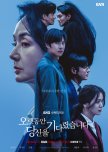
A fancy, unusual treat for crime thriller fans
"Longing for You" offers crime and more at its best. Nice to have along the way: a bit of salt in the fresh air of the coastal town where two of the protagonists grew up in.The public prosecutor's office and the police form a special investigation unit in the case of a serial killer. Solving the case is one thing - an that is overrun by further victims. The internal dynamics within the team as well as emotional complications between further characters are another. Both crime case and complex personal dynamics being jointly combined within a splendidly explosive mixture make “Longing for You” a fancy, unusual treat for crime thriller fans.
We abruptly stumble into an opaque spider's web. The KDrama thrives on its bizarre, strangely interwoven relationships. Abyssal. A bit chilly at times. Mostly harsh and brusque. But sensitive and touching in well-placed spots, too. Suspenseful until the end. Whenever you think you have a clue, the story takes a new, unexpected turn. As I said, a fancy, unusual treat for crime thriller fans.
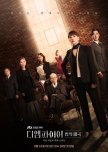
Dynamite is lurking everywhere that could bring the Empire down... but who dares to set it on fire?
First of all: should you watch "The Empire"? In any case. Yes! But: The KDrama isn't funny or soul food at any point... Rather, it provokes by intelligently and multi-layeredly confronting the ugly sides of the glamorous world as well as the almost hopeless rebellion against it."The Empire" stylizes the world of that top 1-10 percent, that outrageously wealthy and influential elite of society who can afford a lifestyle that the rest of society dreams of. At the same time, this elite presents itself as mendacious, bigoted, moral scum. Dynamite is lurking everywhere and could explode at any moment. The KDrama paints a dull, tired, bored, vile, quarreling picture of the rich - not a radiantly beautiful one brimming with vitality. Wealth is displayed in a feudal manner, but it seems a bit pietistic, even from the outside it's rather cold, empty, stale and sad. The color saturation has been reduced accordingly. Some clichés are tickled. Privileged decadence is predominant. Elitist arrogance rules the luxurious, isolated orbit of a calculating, selfish family dynasty. Everything here is expensive, bare, distant, decadent, and nothing is welcoming, warm, beautiful, or friendly. With all that wealth and success, no one is free or happy. ´Trust´ is a foreign word in this family. This makes the KDrama hard to bear in places.
The conservative elite in "The Empire" feigns progressiveness by throwing snippets of English into their conversations. However, this seems artificial (dramaturgically quite effective) and (yet) not very convincing, rather quite strange, because their arrogant fantasies of exclusivity are nothing more than mendacious, feudally inspired traditions, old energy full of cobwebs. When the young, life-disappointed but highly talented student brazenly appears in front of the self-proclaimed aristocrats on her vendetta, it is downright unheard of. But basically it is exactly that and much more of it, what it takes to push the dusty elitist behavior to its limits and ultimately really abolish it. There is no awe in this young woman. It may be that she has the courage of the desperate. Never mind After all! The modern system is already stumbling through her presumptuous impertinence. Interesting that this brave young woman is actually introduced as the bad guy - because we as viewers see the story (initially) through the indignant eyes of the self-ennobled nouveau riche - those who want to represent a class of their own and who are used to directing fortunes behind closed doors according to their interests. To a certain extent, the dramaturgy identifies 'us' with those who govern the "Empire". 'We' are identified with order being maintained and respected. And yet it is difficult for 'us' to side with them. This elitist world presents itself as too lost, too sick, too decadent. ... This collision of two worlds is highly explosive and wonderfully depicts the inner turmoil and contradictions within society.
In between, the journalist seems a bit helpless as a plaything for those who provide her with information for her interests. Despite all the bite she has, she is first on the hunt for her own professional success. The 'thing', what needs to be researched and uncovered, becomes a means to a personal end. Journalism, with its democratic mission, is thus also floating on the edge of decadence and gives little hope. (Yet, hope there is...)
And then there is the protagonist Han Hye-ryul: herself a child of that problematic, ambivalent elite, third generation of the empire full of influential lawyers founded by her grandfather. At the same time bearer of hope for a modern democratic society. She takes her responsibility seriously and uses the opportunities that her origins gave her in the cradle constructively in the service of the community - she does NOT bend the law according to her personal discretion, but her truly innovative credo is: she sticks to it for ALL binding law. She tries to follow her professional path with true integrity. Such genuine integrity gives hope to the masses. On the other hand, they frighten the elite, because this robs them of the foundation of their shadow power.
However, the torchbearer of legal integrity is, beyond her professional ethics, also a person who grew up in a world full of privileges. As a child of the elite, she not only automatically inherits money, fame and influence, but also old guilt, and when in doubt she is pilloried. As a woman, she has feelings like everyone else. As a wife, or rather a betrayed wife, too. As a daughter. And as a mother too. She is therefore challenged on several fronts at the same time.
"The Empire" tells the story of a woman who, out of deep conviction and belief in a legal system, wants to undermine the autocratic, arrogant elite coalition. However, she is the child of a family that is involved in such things whether she wants to or not. And yet it is precisely this family tradition that makes her the full-blooded prosecutor that she is. By tradition, she wants to do her work excellently and in an exemplary manner. And for her personally, that means cleaning up the mess of backroom deals and exclusive privileges. Finally someone who believes the rule of law is above ALL? And not only that: the protagonist is one with an ego that (luckily in this case?) is strong enough to actually take on the powerful enemies. So is there perhaps still hope for a better, fairer world? "The Empire" works intelligently on this question. There is no easy answer to that. The crushing moral swamp to traverse is overwhelming...
... And then there is the fourth generation in the family clan... the son of Han Hye-ryul. He actually ticks quite differently ... for his part, he is the bearer of hope for a new dimension. He wants to swim his way out of the swamp of tradition, and yet he is torn between his feelings for his parents and grandparents and his own needs and desires. He doesn't dare, and yet...
------------------ Side note: --- Inflation of KDrama productions, in which the rich and powerful take center stage in the context of law and order---
The corrupt networks, which want to reach the top circles and the blue house, have become an almost inflationary context for KDramas and movies. A trend that has already been observed in recent years. But 2022 will surpass everything that has been produced so far. "The Empire" is one of many 2022 productions that settle accounts with the discrepancy between free democracy, responsible citizens and equal rights for all on the one hand and class society, strict traditions, hierarchies and autocracy on the other. "The Empire" unashamedly and unequivocally, without any ribbons or icing on the cake, unveils how difficult and long the road still is - to a society in which citizens are actually all treated equally before the law. There is obviously still one instance of power that in 2022 in South Korea is firmly convinced that it is above the law...
Why is the profusion of KDrama productions, in which the rich and powerful take center stage in connection with law and order, so inflated at the moment? So that it maybe/hopefully slowly really sinks into mass consciousness and from there it gets to each individual that this must/want/can come to an end! So sledgehammer: monarchical Joseon is history! Aristocracy and class society are history! Dictatorship is history. Let's go South Korea! Stand tall, walk tall! Don't be blinded. Don't be tempted to join in with this old class thinking and to feel a little more valuable if you have someone you can trample on...
No more reverence and respect. No more feudal lords and serfs. Actually, this is presented every week in KDrama, in the cinema and in the news: that the venerable elite is actually morally rather underground and such a life is neither honorable nor desirable. But as long as the viewer's gaze continues to be dazzled by arrogant behavior and luxury items and prefers to look past the lazy core, there will (have to) be endless KDrama variations with sometimes bigger or sometimes smaller sledgehammers. But that's not surprising either, because the centuries, even millennia-old, tradition teaches something completely different... it has been class-thinking all along...
Nonetheless. South Korea counts the year 2022. It is official: We (even in KDrama Land) ALL have a value and worth regardless of origin, past or future - not just a few percent wearing particularly expensive clothes. Wealth or poverty or anything in between and beyond is independent of a person's worth before the law. If we, who apply the law, still act according to ´other´ laws, allow ourselves to be seduced and bought and used, secretly hoping to be able to take such a quick shortcut further up, then it is our own fault. No one has the right to beat us, use and exploit us and throw us away after use like garbage! No one.
----------------------------------------
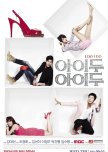
Within the aura of a love story some socially critical topics on successful woman, work & family
"I Do I Do" tends to be humorous, offers a nevertheless emotional love story and at the same time the backdrop for the critical processing of a merciless everyday professional and living environment to which women in South Korea are exposed. As also, for example, "Romance is a Bonus Book", "Scent of a Woman", "Revolutionary Love" or "Angry Mom" the KDrama uses the comedic touch to lift the emphasis of the topic into a lighter tone that is easier to digest. Cheerful and serious aspects are well balanced, also thanks to a great cast.
Within the aura of a love story "I Do I Do" comes along with some socially dominant topics around woman, work and family that want to critically be processed. "I Do I Do" precedes "Now, We are Breaking Up" by nine years. Not much has changed in the status of the professional life of a successful woman (in the fashion scene). The scenario reminds here and there: the experienced, successful and talented designer (here elegant pumps) who has chosen career over relationship/marriage/family; the parents who want their daughter to finally get married properly; a younger man who, after a one-night stand, throws the orderly life of the confident businesswoman upside down. In the case of "I Do I Do", the protagonist ends up in a one-night stand, which is rather untypical for her (and him) due to a chain of special circumstances. The hook for further drama is her completely unexpected pregnancy. ... and 37-year-old Hwang Ji-ahn, still being single, having just been medically diagnosed with a premature menopause...
------------------------------- SIDE NOTE: --- Woman, Work and Family as far as South Korean society is concerned ---
- A woman (in South Korea) can perhaps be successful, but the price for this is her woman-ness (as in many places on earth...). She proves herself to be a better man and simply has no room for relationships where she could live out her soft, tender, feminine side. Showing her weakness at work whatsoever would jeopardize her position. Competitors are already waiting for a devastating neckbutt.
- A woman can be excellent and even unique in her work. From a marketing point of view, however, it is more promising (because it is more binding for business partners) if a man bears the official, managerial responsibility for business sucess... because who knows when the woman will leave the professional world behind and take up her role as wife and mother... The dramaturgical dynamics in this regard are astonishingly differentiated in "I Do I Do". There is even room for the aspect of how women envy each others decisions for either way (instead of solidarily supporting each other - here and there).
- A woman should get married. She can mercifully let off steam for a while in her professional life, since society has already become about 10 years more tolerant in 2012 than in the decades/centuries/millennia before. But the age of 37 is (biologically speaking) a magical limit... because now it's high time. (The KDrama actually offers an exceptional man as a role model who thinks progressively here...)
- Dating, a woman automatically becomes the one who needs/wants to be protected and the one who in turn provides the man with allround care. What a mess, if roles lose their clear assignments. Here, too, the KDrama offers, among other things, another (different) exceptional male role model - one who (although instinctively a protector, too, but nevertheless) is ready to develop in a different way.
- And then equally valid for men and women: relationship is not a private matter. At least the parents are the first to have a say.
-Also: The greatest happiness in life should be a permanent position. Everything else is extra...
---------------------------------------------------
"I Do I Do" defies these societal norms, which in South Korea seem to be chiselled in stone. This is no piece of cake. Interestingly, the KDrama offers only one answer to the question "What are the arguments in favor of deciding to have a child or a family as a professionally ambitious woman?" - this in the face of an almost endless list of reasons that argue against it... This single commitment to a "yes" (towards children and family) is located beyond rationality. This "yes" has nothing to do with virtue and values. This one and only "yes" argument is completely personal. (My respect for taking such a position - one that actually stands outside of society´s right to have a say in this!)
After all, "I Do I Do" eventually shows another variation in the Cinderella spirit of fairy tale love stories ... But. I consider the way as the goal! And the path described in this KDrama (the circumstances and processes of the main protagonist) makes it definitely worth seeing. In addition, Kim Sun-ah finds a good balance between a competent, unapproachable boss and an approachable, not so competent 'woman' with her heart in the right place. Lee Jang-woo also convinces me here in his role as the much younger, impulsive, unconventional Park Tae-kang.
By the way: Since it is about the world of fashion designers and pumps in particular, it would be worth mentioning that the viewers get to see a lot in this regard. Not only in Ji-ahn's well-stocked private shoe room, but also beyond that - 500 pairs of pumps were brought up for the series that were supposedly worth almost 9,000 euros. Also, the protagonist Ji-ahn's individual fashionable style (which goes back mainly to Kim Sun-ah's specific, personal suggestions) became a trendsetter at the time.

I was immediately enthusiastic. It is exciting. Intelligent. Complex. Stylish. Cinematic. Touching.
In "Secret Boutique", the boutique itself is actually not the main focus, but rather its boss. With what her boutique secretly offer she has made herself irreplaceable for the established upper circles of society .- An eye-catcher: Kim Sun-a as Jenny Jang in always exquisite, stylish fashion and with sunglasses that are extravagant in every lighting condition. She acts mostly calm, controlled, superior, with a poker face and in every situation a suitable solution to the problem.
- A joy: Go Min-si as an intelligent Baduk (Go) player and equal strategist who suddenly stumbles into Jenny Jang's team.
- A ray of hope: The fact that this KDrama lives on the many powerful female leads. Three Jaebeol ladies (!) included. The 'men' here tend to be tame shepherd dogs in the service of 'their' ladies...
I was immediately enthusiastic about "Secret Boutique". The KDrama is exciting. Intelligent. Complex. Stylish in the high-end segment. Often almost cinematic in light, colors, camera and set design. And despite all the sublime arrogance, sophistication and need for (self)control, it is also touching. Human traits are presented not only abysmal. A warming grounding in cordiality comes along with the characters around the Go player Lee Hyeon-ji.
Calling the story of "Secret Boutique" a romance wouldn't be appropriate. Feelings still play an important role - here and there and over there, too. Deep feelings no less. Nothing is shallow here. But primarily I would describe the KDrama as the exciting story of a revenge campaign. A story about the (emotional) price of such a vendetta. In addition, an intriguing story about the unfair, corrupt and criminal machinations of the greedy rich, who unscrupulously go over dead bodies, too. A compassionate story that offers insight into the very particular structure of the Jaebeol empires, which channel their power within the family (at the expense of trust, warmth and closeness). A touching story about love and loyalty. Also about how roles, norms and social structures as well as an ambitious ego hurt your own heart. In addition, the KDrama came up with a profound punchline that takes the Jaebeol worldview to the point of absurdity: the Jaebeol daughters, who are so convinced of their elitist, inherited noblesse and who consider themselves so much more valuable due to their lineage, actually do not have any Jaebeol-blood at all ... "Secret Boutique" portrays all of its drama characters in a complex, multi-faceted and tangibly human way.
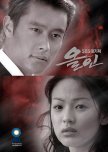
The actors put their heart&soul into it. Soundtrack + camera provide a unique ambience. A Classic.
"All In" is a timeless classic from the early days of KWave. Via main plot and various sidelines involved, you dive into the subculture and parallel world of back room and casino gamblers. In the course of the story, the glitter and glamor of the casino world increasingly take their place, all the way to Las Vegas.Besides the gaming milieu, the series provides insights into the life of simple, poor young people in the late 1990s, which were shaken by the Asian crisis, and offers interesting local color. The well-established KDrama leitmotif 'Orphanage' also has its place here again. Soundtrack and camera capture the action in an atmospheric and impressive manner.
The actors put their heart and soul into it. In the case of "All In" the milieu-specific ambience was supposed to appear as authentic as possible. Therefore, in advance of shooting Lee Byung-hun and Son Hye-gyo (as adults of the main protagonists) went through an intensive training program, including in a casino in Las Vegas: Lee Byung-hun concentrated on virtuosity Card shuffling techniques and the eye dramaturgy of professional players at the gaming table (he won the Grand Prize at the Baeksan Arts Awards that year, as did the drama itself). Song Hye-gyo, on the other hand, was trained as a croupier and not only convinces when she sorts the chips at a breakneck speed.
The opening scene with a helicopter over the Grand Canyon alone is reminiscent of the beginning of a blockbuster à la Tom Cruise or something similar. "All In" isn't just romance, it's also packed with plenty of action, including brawls and gunfights. It's also about friendship among men. As a milieu study of the gamer's world, it's ultimately about gangsters and mafia, too. (Perhaps it is no coincidence that "the godfather" has a guest appearance in the story: it is shown as a movie in the cinema that shaped the youth of the protagonists.) But of course it's also about great love - in the progress of the 24 episodes facing one obstacle after another - it´s makjang after all...
At the time (2003), this KDrama triggered a veritable All-In-Syndrome in South Korea. The filming locations on Jeju Island became a hotspot for fan tourism. The ratings on public television back then are legendary (at around 47 percent).
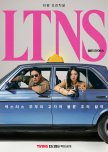
A bit weird and edgy, yet refreshingly and unashamedly honest about what love life also is like
"LTNS" (Long Time No Sex) starts off where other series usually end. TVING doesn't care about age ratings. “LTNS” is unusually explicit for a KDrama. At the same time, “LTNS” presents itself as a pitch-black comedy with venomously satirical overtones. Be prepared for an edgy series that is refreshingly and unashamedly honest about what love life also is like...If desire in a relationship has been turned off over time by habit and everyday worries while instead alienation and disinterest are creeping in... what should you do? The protagonists unexpectedly find an almost absurd option to bring some excitement and “we”-time back into their relationship. With detective zeal, they set out to blackmail those in whom the fire of (actually forbidden) desire still burns happily... and in doing so, they thus try to create a (almost criminal) virtue out of their own need, so to speak.
"LTNS" has fun with scenes that convey uninhibited sexuality one moment, but are completely unerotically thwarted the next. It is somehow down to earth in a most peculiar way. Bedroom stories are being told here that we haven´t been waiting for. All of a sudden such a certain mood for certain hours is eventually collapsing like a house of cards due to a mishap or unexpected incident... A "Bravo!" in this context to the actors, too!
“LTNS” promises a special kind of bizarre, weird series delight with plenty of potshots at the mendacity concerning certain facades of a solid and sincere love life and family life that are usually and preferably presented to the outside world.
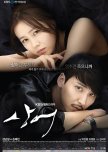
A shark may not be able to generate suction, but "Shark" can very well do so !
The title "is an allegory and a leitmotif - be it the original title "Shark" oder the sometimes internationally also used title "Don´t Look Back: The Legend of Orpheus".The latter not only alludes to the ancient legend of Orpheus, but also to Marc Chagall's painting of the same name, which can be found in the KDrama as a leitmotif, too. It basically describes what this is about. As far as the mythology is concerned: Ultimately, Orpheus never gets his great love Eurydice back - even as tries to return with her from the realm of the dead, he unfortunately doesn't manage to do without "looking back" (the condition for the rescue to be successful). In relation to the story of the KDrama, this could mean: the protagonist would have to give up his revenge - his being stuck in the past. And that brings us to the core of the story: revenge.
The original title "Shark" refers to a second leitmotif: Since childhood the protagonist feels a great affinity and sympathy for this particular predatory fish. Ocean sharks must always be on the move. Their mouth remains open so that fresh, oxygen-rich water can reach their gills and they are able to ´breathe´. Not moving means no fresh oxygen supply and thus their certain death. This implies an inevitable activity at all times - consequently they are always dangerous. Ocean sharks are loners, too. At most they join together in groups for hunting. In this respect, the story is set in the world of powerful, highly influential Jaebeol, whose machinations tremendously drive the Wheel of Fortune. They never stop shaping the world at their will, regardless of the cost. The protagonist courageously competes against one of the really big ones (actually against two). There is plenty of manipulation on all sides - as if you were pulling the strings of puppets. Sometimes one might think of vodoo dolls... Police and lawyers are breathlessly chasing behind the events. (It came at a time when bribery and corruption in South Korean business and politics was still more common and taken for granted than nowaydays. It was only a couple of years later that even the head of state was accused of being part of a shocking network controlled by Jaebeol bribery. To that extent the KDrama was just on spot at its time.)
"Shark" offers a fine study about injustice trying to be compensated by vigilantism. However, making amends is not possible. The protagonist's father is and remains dead. Revenge isn't that easy either, because in the course of his chess moves the protagonist stumbles over truths he didn't expect and a love that could get in the way of revenge plans. (Somehow Orpheus is whispering into the protagonist´s ear: "Do not ´look back´!", e.g. let go of revenge and vigilantism...)
The shark (as an animal) may himself not be able to create suction (for breathing), but the KDrama "Shark" can do so very well. The soundtrack sets the rhythm, the melody burns in, the events take their course and you always want to look around the next bend to see what might happen next. Although the good guy is the bad guy, you're feverishly at his side. And on the side of the bad guys, there are the good guys too. What to do with morals...
"Shark" gives practical insight into the early hours of the Jaebeol and their machinations over time. The roles of their long-term companions, who knew them from the earliest hour before their rise as Jaebeol, are also highlighted (e.g. their companions, today assistants, secretaries, drivers, lawyers, etc.). With those they have come a long way and so the know each other, like no other).
"Shark" is more on a tranquil side and maybe less colourful than other KDramas. Both background and heart of this KDrama with its characteristic tinting are set by the tender childhood love - between the Jaebeol´s grand daughter and the driver´s son... The differentiated side plots also keep viewers on their toes. ... It remains thrilling until the end, when open questions are answered.
Mercilessly the wheel of fortune turns, over 20 episodes. The premonitions of the first scenes are set ´today´. Then, in retrospect, the emotional relationship between the protagonists, what happened back then and where they are coming from is portrayed via their youth experiences, before the today´s storyline is picked up again.
Some call this KDrama a masterpiece. I am one of them.
Yet the whole is as often more than its parts. If you are primarily in it for the romance you might be disappointed in the end. Rather against the setting of this love story the KDrama is giving insights into the careers and backdrop of the shiny Jaebeols´ shady practices. In return on this solid drama-soil the emotionally challenging processes of those two ´associated in love´ unfold...


 9
9 39
39 15
15















